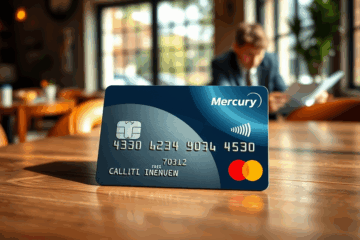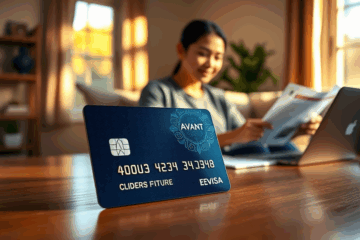Credit Card Essentials for New Users
Credit Card usage is an essential aspect of modern financial management that can significantly impact your personal finance journey.
In this article, we will explore the ins and outs of credit cards, including how they work, their benefits, and the potential risks involved.
Understanding key credit card terms and strategies for responsible usage will empower you to make informed decisions that can benefit your financial future.
Whether you’re a beginner or looking to refine your credit card knowledge, this guide aims to provide valuable insights and practical tips that can help you navigate the world of credit cards effectively.
Understanding Credit Cards
A credit card is a convenient financial tool, acting as a way to borrow money from a bank or financial institution to make purchases.
Essentially, it’s like getting a short-term, interest-free loan if you pay off your balance at the end of each month.
This is crucial for building a solid credit history and a good credit score, which can impact your ability to secure loans or even rent an apartment.
Learning about credit cards is essential for maintaining your financial health.
Understanding features like interest rates and potential fees help you make informed decisions and avoid the pitfalls of debt.
Moreover, responsible usage such as paying on time and staying within limits ensures you benefit fully from what credit cards offer.
For further details, you might visit Money Helper Credit Card Guide.
- Responsible usage for building your credit score.
- Understanding the benefits of credit card rewards.
- The potential risks associated with credit card debt.
- Managing interest rates to minimize costs.
Learning how to navigate credit card usage is a vital step in achieving financial stability.
Mechanics and Key Concepts
Understanding the mechanics and key concepts of credit cards is fundamental to managing your finances effectively.
When you make a purchase with a credit card, the amount is charged to your credit limit, and you are expected to pay it back by the due date.
If the full balance is not paid, interest starts accruing on the remaining amount, which can lead to additional debt if not managed carefully.
Glossary of Essential Terms
A credit card glossary is crucial for understanding essential terms that impact your financial decisions.
Discover key concepts such as annual percentage rate, which measures the cost of borrowing.
With resources like Investopedia, you’ll gain a deeper understanding.
Manage your expenses with grace period, as defined by the Capital One learning guide, helping you avoid interest by referencing the period between your billing cycle and due date.
The next crucial concept involves knowing your credit score, as it influences your borrowing capacity and can be improved with informed financial practices.
Access details on such terms from Commerce Bank to stay informed.
Consider also recognizing the importance of fees like the annual one, which could be found by exploring materials from places like Consumer Financial Protection Bureau.
Below is a handy table summarizing these definitions:
| Term | Meaning |
|---|---|
| APR | Annual interest rate on balances |
| Grace Period | Time to avoid interest after billing |
| Annual Fee | Yearly card membership cost |
| Credit Score | Measure of financial trustworthiness |
| Statement Balance | Outstanding amount at billing end |
| Late Fee | Charge for overdue payments |
Advantages and Drawbacks
Credit cards offer a unique blend of advantages and drawbacks that can significantly impact your financial well-being.
They can help build your credit history and provide valuable rewards, making them appealing for many consumers.
However, if mismanaged, credit cards can lead to accumulating debt, incurring fees, and damaging your credit score.
Risks in Detail
Credit card misuse leads to significant financial consequences, with interest accrues daily on any outstanding balance, quickly turning manageable debt into overwhelming financial burdens.
Every day a balance is left unpaid, additional interest multiplies the debt, often at surprisingly high rates.
Missing payments compounds this issue; beyond accruing extra interest, late fees further inflate the amount owed.
According to The Muse, these penalties can rapidly snowball, dramatically increasing the original debt.
Moreover, failing to make timely payments severely impacts your credit score, potentially dropping it by 17 to 83 points if overdue by over 30 days, as noted by a source from CNBC.
This decline in credit rating influences future credit opportunities, likely reducing access to loans and increasing interest rates offered by lenders.
Therefore, consistent monitoring and prompt balance payments are crucial to prevent these costly lines of credit from spiraling out of control.
Smart Habits for Beginners
Begin your credit card journey with success by incorporating smart strategies into your routine
Pay the full statement balance on time to avoid piling up interest charges and to build a robust credit profile.
By regularly reviewing your statements, you’ll catch any errors early and also notice any patterns in your spending that could be optimized.
With the help of features like transaction alerts and budgeting apps, you can stay vigilant in tracking expenses, ensuring every penny is accounted for effectively.
Balancing expenditure while understanding the nuances of rewarding programs can amplify the benefits without incurring unnecessary costs.
Remember, staying within your budget is crucial.
Set realistic financial goals and ensure that each credit charge aligns with them.
Integrate these tips into your daily financial practices, and you’ll pave the way towards a stress-free and rewarding credit card experience.
Always spend within your means to maintain financial stability.
Establish a self-imposed credit limit lower than your actual limit to cushion against any unexpected expenses.
And, whenever possible, make more than the minimum payment to slash down on interest and reduce debt faster.
Embrace these actionable steps to not only manage your credit cards responsibly but also to enhance your financial literacy.
Stay confident in your choices, and soon you’ll find that responsible credit use doesn’t just safeguard your finances but also empowers your lifestyle.
Keeping these practices in mind, you’re set for a healthy financial future.
Credit Card literacy is crucial for making sound financial choices.
By understanding the benefits and risks, along with responsible usage strategies, you can harness the power of credit cards to enhance your financial well-being.



0 Comments